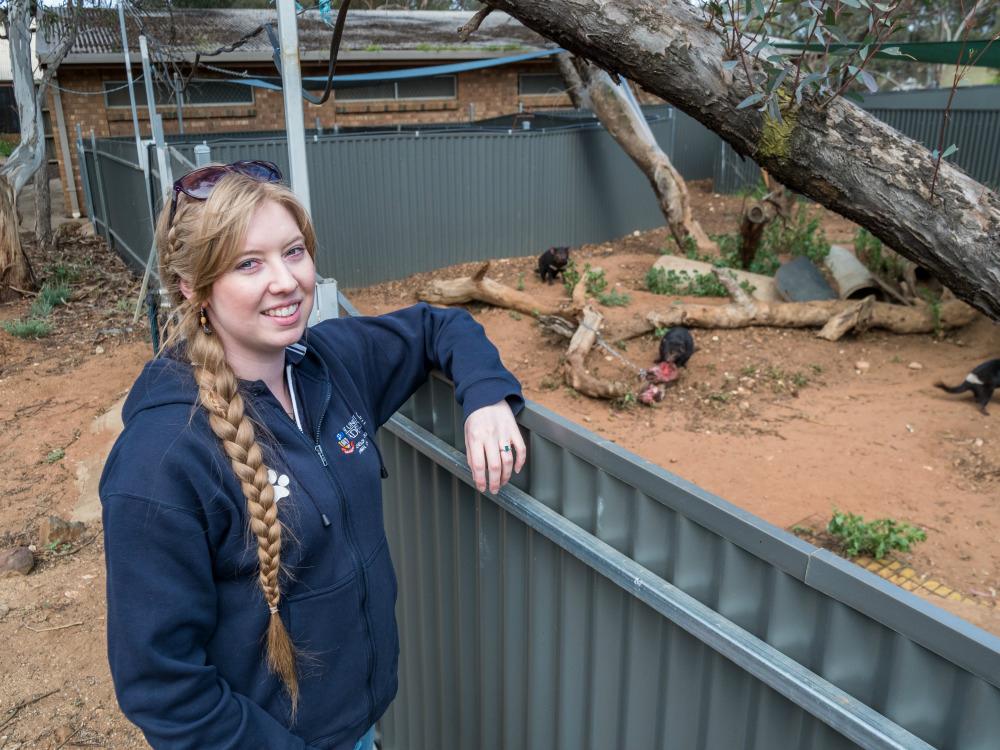Crowdfunding campaign launched to help save Tassie devil


PhD candidate Chelsea Graham who is conducting research that will contribute to finding a cure to the life-threatening disease affecting Tasmanian Devils
A crowdfunding campaign has been launched to help save the Tasmanian devil, one of Australia’s most iconic but endangered animals.
Tasmanian devils face extinction from a cancer called Devil Facial Tumour (DFT). The key to curing them of this disease could lie in the cells in their mouths.
“Devil Facial Tumour is an infectious cancer that only affects Tasmanian devils. It has reduced the wild population of devils by 80% in just the last 20 years,” says University of Adelaide PhD candidate Chelsea Graham who is conducting research that will contribute to finding a cure to the life-threatening disease.
“The cancer, which is unique to devils, originated from a Schwann cell (a cell of the peripheral nervous system) and is responsible for the rapid decline of the devil’s wild population since its emergence over a decade ago,” says Ms Graham.
“Devils pass the aggressive, transmissible cancer to one another when they bite each other. The animals die within six months of being infected, as disfiguring facial tumours prevent them from eating.”
Chelsea’s research is a collaboration between the University’s School of Animal and Veterinary Sciences and School of Medicine, with the laboratory work being carried out at the South Australian Health and Medical Research Institute (SAHMRI).
“This research is focused on the stem cells located in the pulp tissue of devil canine teeth – known as dental pulp stem cells,” says Ms Graham.
“It is the first study to concentrate on the dental pulp stem cells in marsupials let alone the Tasmanian devil. I am replicating methods that have been successful in human stem cell research and applying them to both the Tasmanian devil dental pulp stem cells and DFT cells,” she says.
Chelsea flies to Tasmania to collect the teeth when they become available and has only 24-48 hours to return the canines to SAHMRI before they are rendered unusable.
Dr Stephen Pyecroft, Senior Lecturer at the University’s School of Animal & Veterinary Sciences, was one of the first scientists to describe DFT and discover that it was a transmissible cancer.
“This research is a crucial step towards tackling the devastating disease and saving the Tasmanian devils,” says Dr Pyecroft.
“Money raised from the crowdfunding campaign will help Chelsea obtain more devil tooth samples and use the harvested stem cells to recreate the Schwann cell line. This will be pivotal to understanding Devil Facial Tumour,” he says.
The crowdfunding campaign aims to raise $5,000 to fund further research, which could help save the devils for the next generation.
